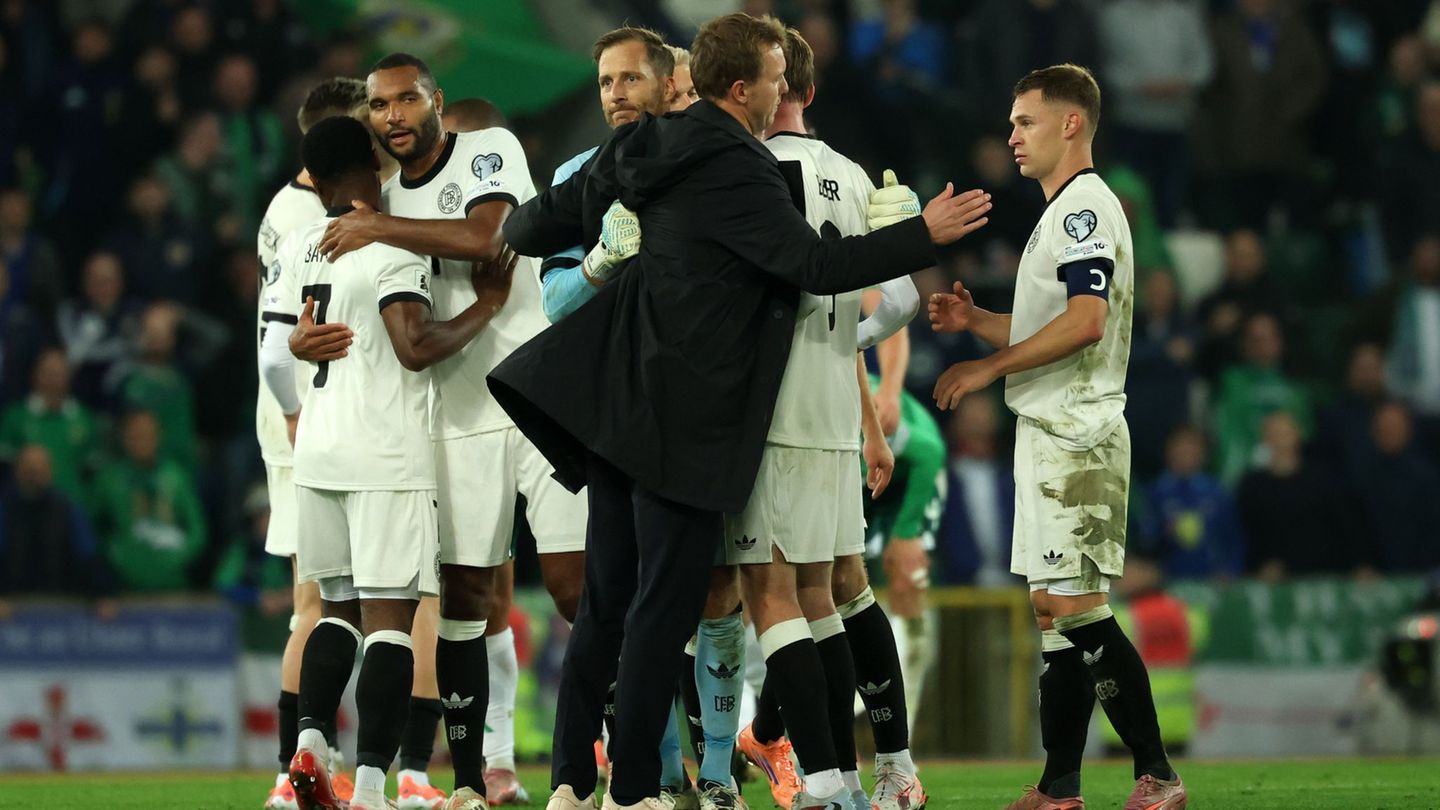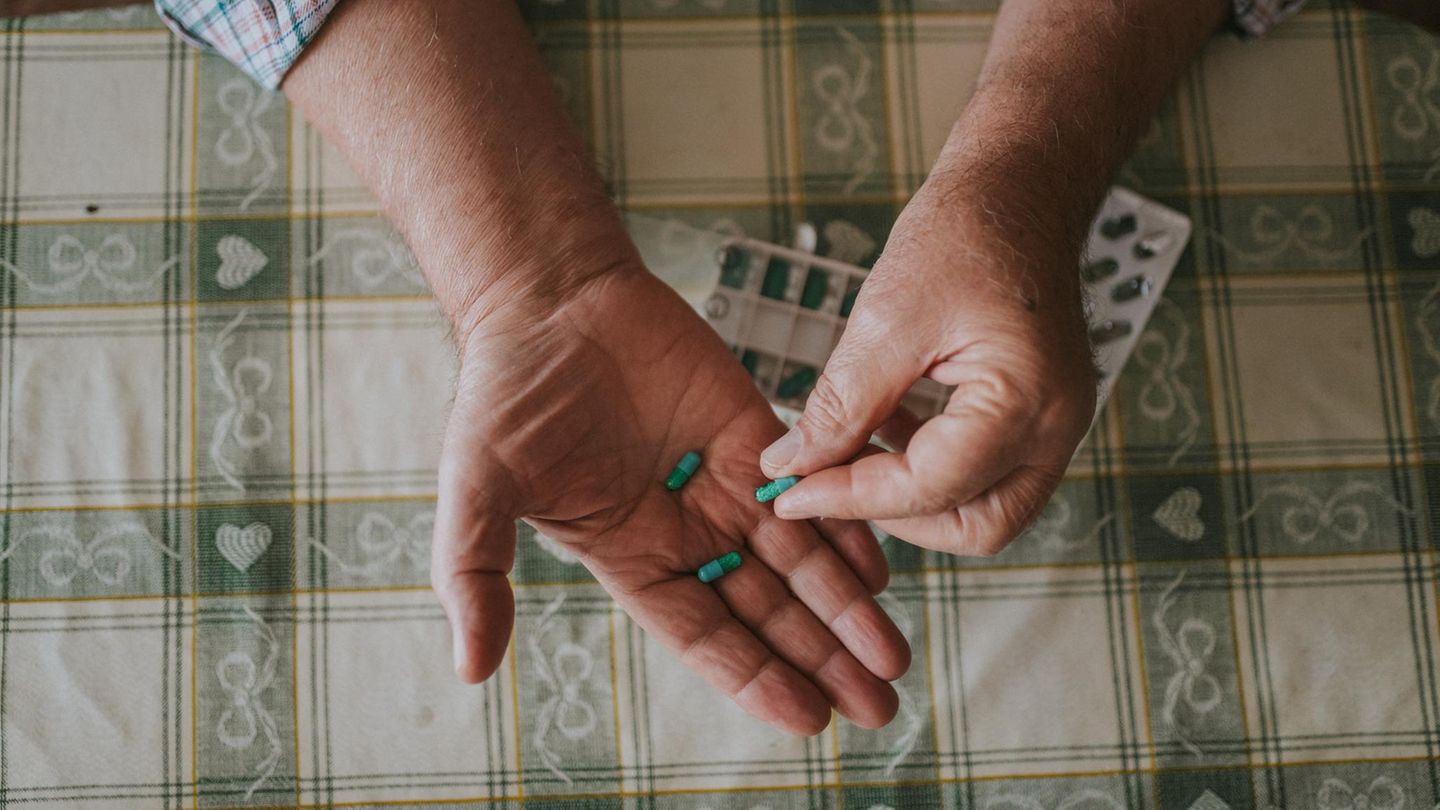Beer, sport, emotions: The European Championships are causing cases of violence against women to rise, warns UN Women. Author and victim protection expert Agota Lavoyer explains why this is the case – and why it is tricky to blame football for it.
The figures are alarming: every other day a woman in Germany dies at the hands of her (ex-)partner. According to , cases of domestic violence have increased by 17.5 percent in the last five years alone. The United Nations women’s rights committee, “UN Women”, is now warning of an increase in violence against women during the men’s European football championship. Studies from England have shown that when the English national team wins, the number of reported cases of domestic violence increases by 26 percent, and when they lose, the number increases by 38 percent.
The author and social worker Agota Lavoyer is an expert on gender-based violence and has worked in Switzerland as a director of victim support services. star she explains how football culture can contribute to violence and why it is important not to blame the crisis on drunk football fans.
Ms Lavoyer, why do you think football tournaments like the European Championship play a role in the increase in domestic violence against women?
Internal tension and increased alcohol consumption can make men who are already prone to violence more likely to resort to violence. At the same time, there are millions of passionate football fans who also consume alcohol and who still do not beat up their partners. Domestic violence existed before the European Championships, it existed during the European Championships and it will continue to exist after the European Championships.
The fact that we are now talking more about domestic violence in the context of the European Championships is fundamentally very welcome, because gender-based violence is still not treated by society or politics as what it is: a global crisis that must be counteracted by all means.
Alcohol consumption in the football context is therefore a factor that encourages violence against women. What else is there?
In the football context, men are often among themselves and their sexist comments and actions often go unchallenged, and they can even score points with their friends. This makes the actions tacitly conceivable and feasible. At the same time, it is no different outside of football events. It is important that we do not confuse factors that encourage or trigger violence with the causes of gender-based violence. Because by doing so, we exonerate those we actually want to denounce: the men who commit the violence. It is very tricky when the debates are conducted as if football and alcohol were the causes of domestic violence.
And what are the reasons for this?
Male violence has its roots in the socialization of men. Boys are taught from an early age to assert themselves, to be doers, to not allow themselves to have feelings, not to take no for an answer, to cross boundaries, to take what they want and what is “due to them”, using violence if necessary.
What can raising awareness of the issue look like?

We need to understand that gender-based violence is not an unavoidable evil and that men are not inherently more violent than women, but that men are socialized to be so. As long as we teach boys that dominance, especially over women, is a crucial quality of masculinity, they will become men who feel entitled to see women as their property, whom they can sexualize and control, even with violence.
That’s where we need to start: with patriarchal gender stereotypes and ideas of masculinity. We also need to talk more about the more invisible forms of domestic violence: psychological violence, for example, or financial control by a partner.
In your book “Every Woman” you specifically address sexual violence. What role do cultural norms and images of masculinity play in this?
We live in a society in which sexualized violence is seen as part of “natural” male behavior, rather than something that is structurally and culturally created and maintained. If boys grow up with the image of masculinity that they need sex and that women owe them sex and that “adorning” a woman is actually a yes, then they become men whose value system does not allow a woman to say no. Men who take what they want because they think that women and women’s bodies are theirs.
2-0 win against Denmark
Musiala continues to whirl, Havertz uses the national coach’s trust – the German team in individual criticism
What preventive measures could be taken to reduce the risk of violence against women, especially during the European Championships?
When it comes to violence at the events themselves, the organization, founded in 2019, does immensely important work in the context of football. Among other things, they have developed an action plan to protect against violence, in which clubs, associations, fan groups, clubs, but also security personnel and the police are shown which preventive measures must be implemented at such events. Last but not least, prevention requires a clear and openly communicated stance that sexualized violence will not be tolerated in any way and that incidents will be consistently punished.
When it comes to the violence that fans commit at home, the preventive measures during a European Championship are no different than they are before or after the European Championship. We must ensure that women are treated equally in all areas of life so that this sense of ownership by men does not arise in the first place. In addition, domestic violence must become a fixed part of the school curriculum, we must dispel gender stereotypes and men must be prepared to leave their complicit male groups.
Source: Stern
I am Pierce Boyd, a driven and ambitious professional working in the news industry. I have been writing for 24 Hours Worlds for over five years, specializing in sports section coverage. During my tenure at the publication, I have built an impressive portfolio of articles that has earned me a reputation as an experienced journalist and content creator.




